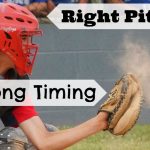As a small business owner, managing your finances is crucial to keeping your business running smoothly. A certified public accountant (CPA) can help you with financial statements, business expenses, tax preparation, and more to ensure your small business is financially secure.

I know your business. Because we deal with clients like you all the time, I’ve got a leg up on all those “gurus”, since I’m right there in the trenches with you. – Michael Dolezal
Table of Contents
- Financial Statements
- Tax Planning
- Strategic Planning
- Key Takeaways
- Related Questions
1. Financial Statements
An effective CPA can help you prepare financial statements that accurately reflect the financial health of your small business. These financial reports include the balance sheet, income statement, and cash flow statement, which provide insights into the profitability, assets, liabilities, and cash flow of your business. By analyzing these statements, a CPA can help you identify areas where you can reduce expenses, increase profits, and manage your cash flow more effectively.
2. Tax Planning
Small businesses need to stay on top of their tax obligations to avoid penalties and fines. A CPA can help you plan and prepare your taxes to ensure you’re in compliance with tax laws and regulations. They can also help you take advantage of tax credits, deductions, and other incentives to minimize your tax liability. With the help of a CPA, you can do more than file accurate tax returns – you can develop a tax strategy that aligns your tax liability with your business goals and helps you save money.
3. Strategic Planning
In addition to preparing financial statements and managing taxes, a CPA can also help you with other strategic planning. This includes developing a long-term financial plan, identifying opportunities for growth, and assessing the competition. With a CPA’s expertise and guidance, you can make informed decisions about the future of your small business and create a roadmap for success.
4. Key Takeaways for Small Business Owners
- A certified public accountant can provide insights into the profitability, assets, liabilities, and cash flow of a business via financial reports and statements. This can help them identify areas to reduce expenses, increase profits, and manage capital more effectively.
- A CPA can help small businesses stay in compliance with tax laws and regulations, while also taking advantage of tax credits, deductions, and incentives to minimize their tax liability. With a CPA’s help, small business owners can develop a tax strategy that aligns with their business goals and helps them save money.
- A CPA can also provide strategic planning services, such as developing a long-term financial plan, identifying opportunities for growth, and assessing the competition. This can help small business owners make informed decisions about the future of their business and create a roadmap for success.
5. Related Questions
What qualifications should you look for in an accountant?
When looking to hire a CPA for your small business, consider qualifications such as state licensure, relevant experience with small businesses, knowledge of tax laws and regulations, industry-specific knowledge, communication skills, and technology skills. A qualified CPA can provide valuable financial insights and help streamline your accounting processes, ultimately helping your small business thrive.
Is a CPA worth it for a small business?
A CPA can help make the right financial decisions without sacrificing your personal finances. Tax advice, tax preparation, and planning can help your company reduce its income tax burden.
What should a small business ask a CPA?
What are some tax implications for businesses? Are my growth objectives being achieved properly? How does taxation impact industries and their taxes? Can we reduce the costs of our business? What are the tax implications for businesses? How are we achieving our growth goals? What is the easiest method to improve cash flow?
What should a good accountant do for a small business?
An accountant may be the best option if your business is looking for a way to keep the cash flow management of a business functioning as it should be.
How Do You Choose an Accounting Firm?
A firm that specializes in working with businesses should be able to provide a complete range of accounting services to small businesses. The fee also has to be weighed carefully. Outsourcing is required by law to provide services effectively. If you have more work on your business you may pay less for accounting services. If you already use accounting software then it is ideal to work together with one company using this software to manage your business’s finances.
Michael Dolezal & CO, CPAs & Business Advisors
Looking for support in making sound financial decisions for your business? We can help. Reach out to our team of experts today to ensure your business finances are safe and secure.














